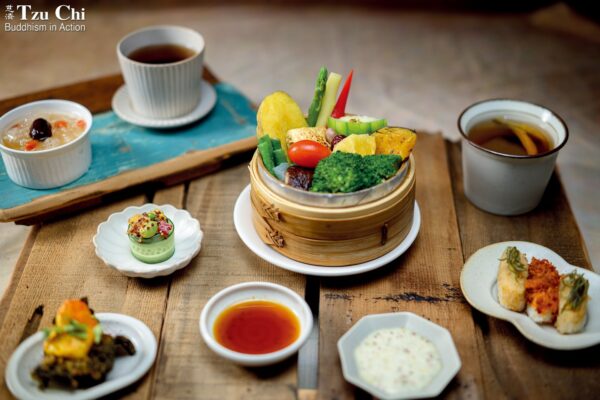The COVID-19 pandemic has spanned two winters, upending the world as we knew it and disrupting the lives of billions. People the world over have reshaped their daily routines to cope with the challenges brought by the coronavirus. It is everyone’s hope that life will soon return to normal.
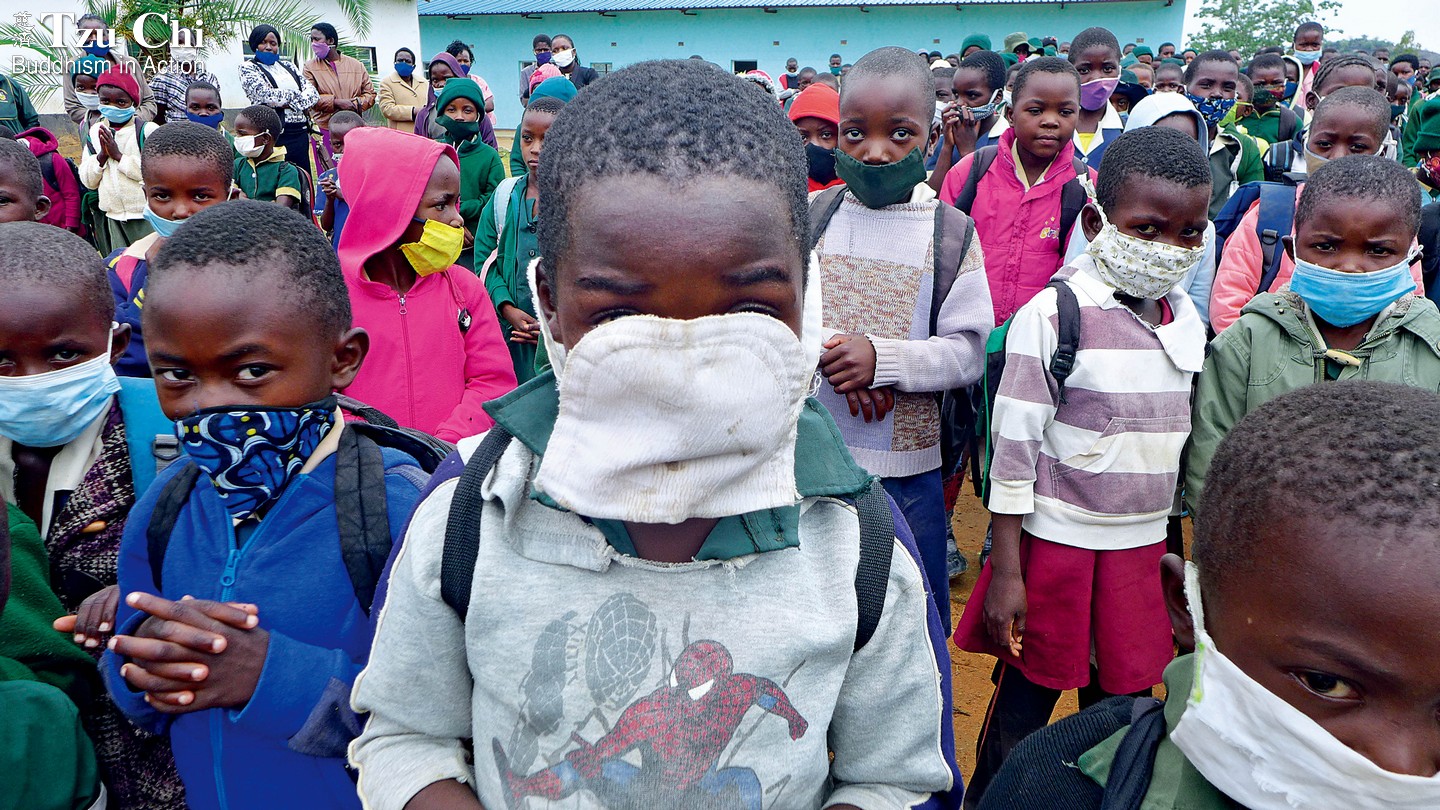
Zimbabwe, in southern Africa, suffered from a lack of personal protective equipment after the pandemic broke out. Some children at Murerekwa Primary School in Masvingo Province had no choice but to wear makeshift masks. Tzu Chi volunteers donated a thousand medical masks and an infrared thermometer to the school in November 2020 so that the lives of students and staffers there could be better protected. Hlengisile Jiyane
New Norm
Wearing a mask, washing your hands often, and maintaining a social distance are the basics in the battle against the coronavirus. Personal protective equipment has as a result become a daily necessity, whether in hospitals or personal lives.
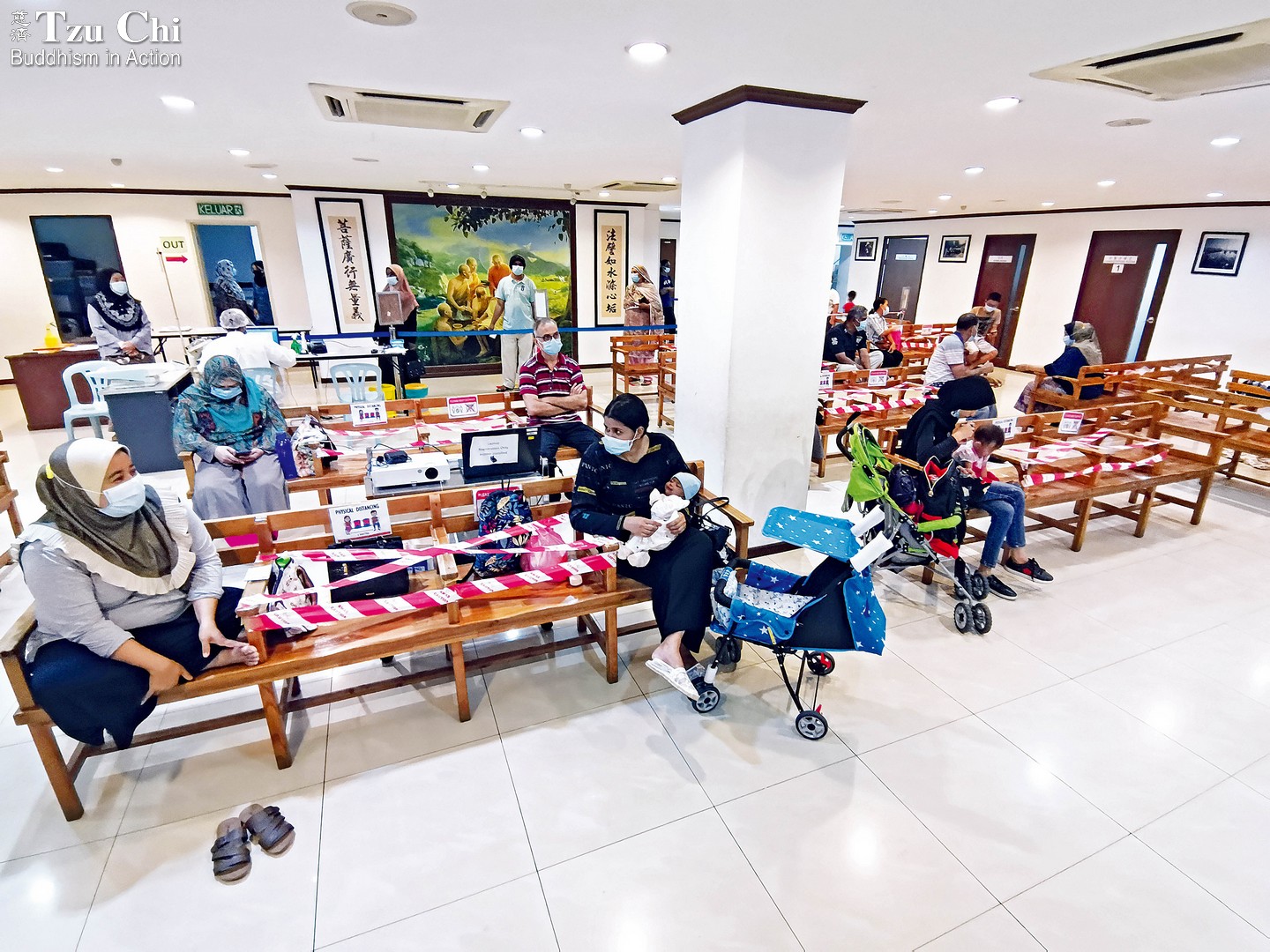
Patients sit at least one meter (3.3 feet) apart on long benches in the Tzu Chi Free Clinic in Kuala Lumpur, Malaysia, to prevent the transmission of COVID-19. He Zhi Wei
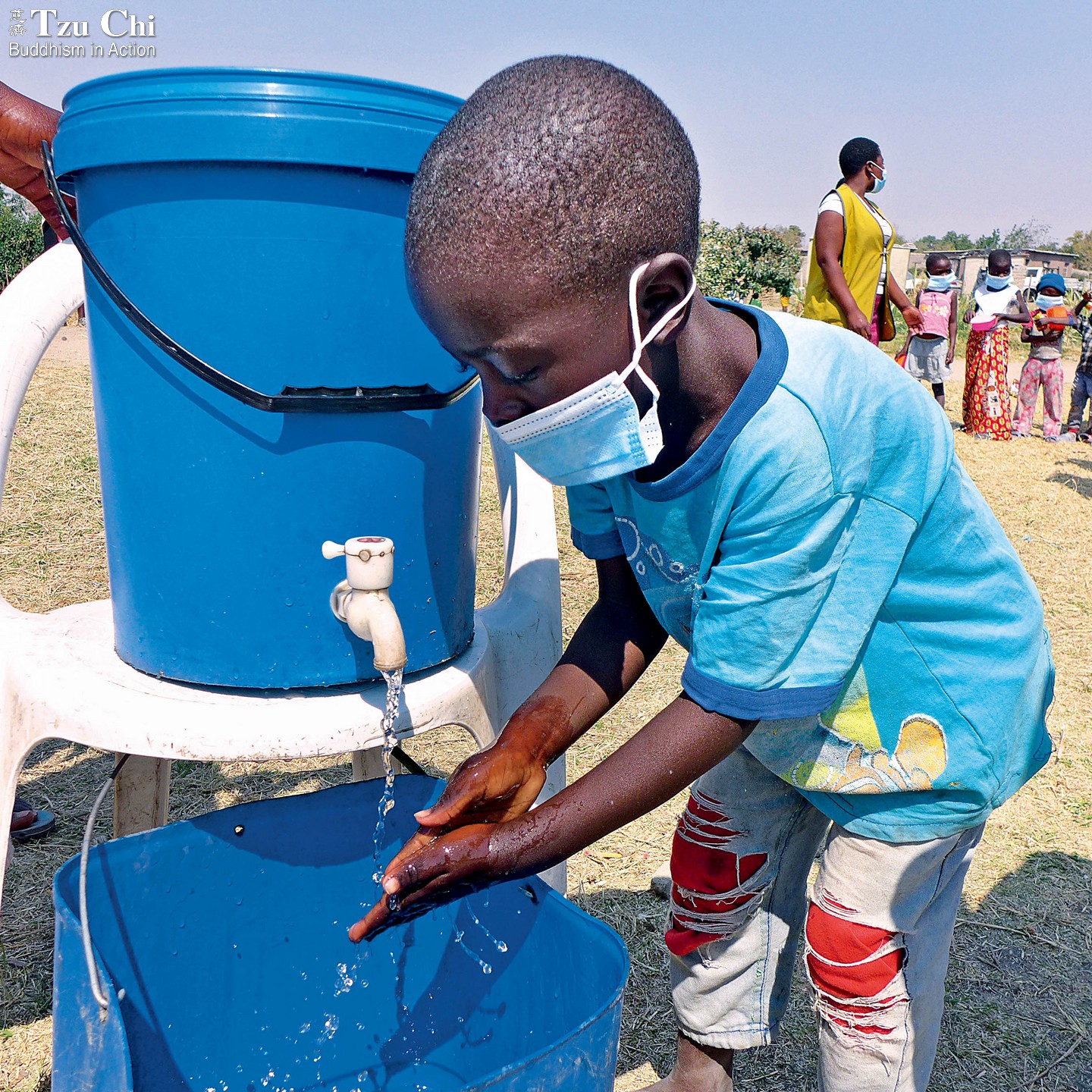
After lockdowns were imposed in Zimbabwe, a rising incidence of malnutrition among children was reported in Epworth, an area in Harare Province with many destitute people. Tzu Chi volunteers, after obtaining permission, resumed their meal program for children in the area to help tackle this issue. A child is pictured here washing his hands with water and soap prepared by Tzu Chi volunteers before receiving his meal. Hlengisile Jiyane
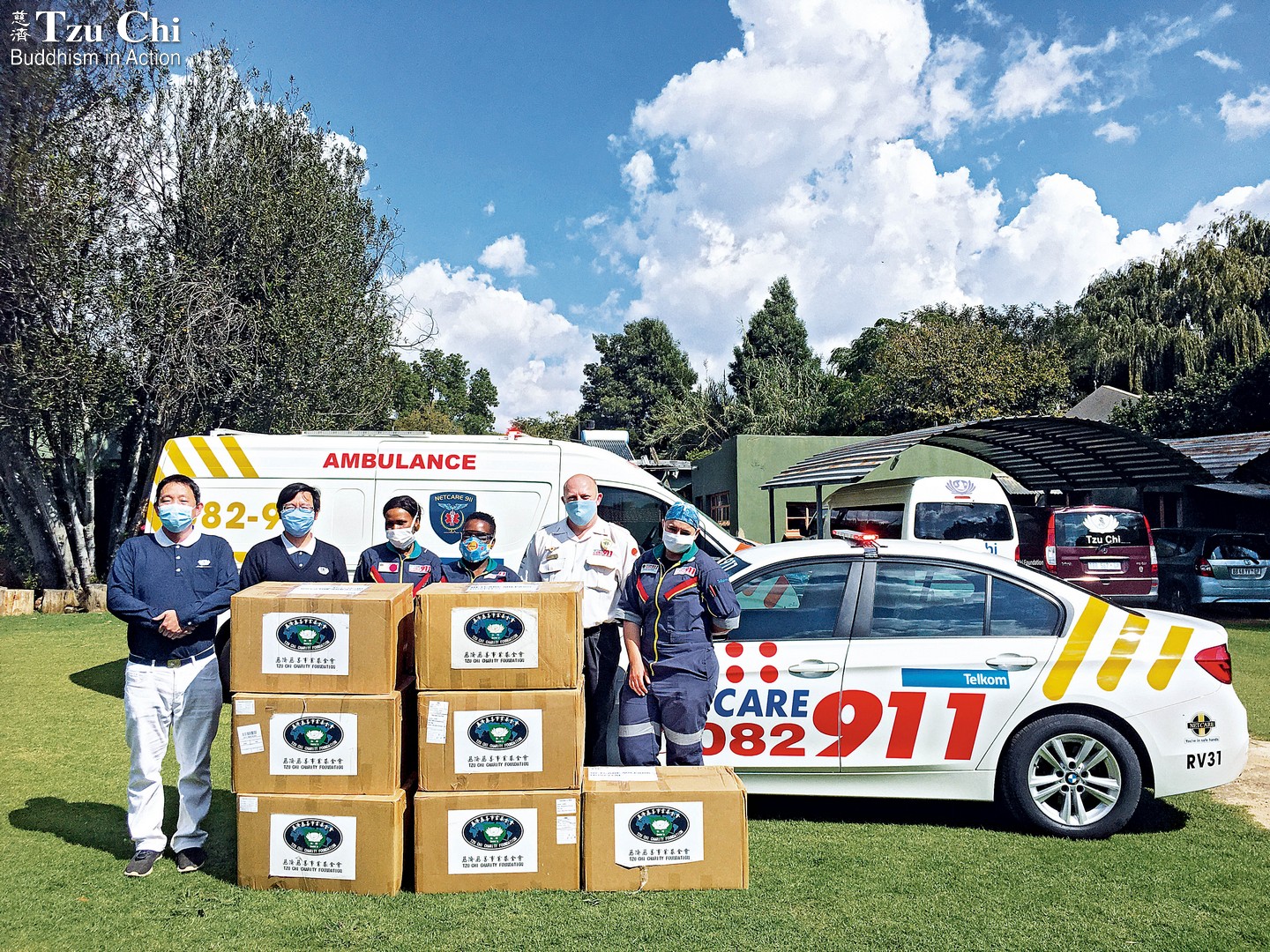
When a shipment of Tzu Chi-donated personal protective equipment arrived in South Africa in mid-April 2020, Netcare Milpark Hospital in Johannesburg sent an ambulance to a local Tzu Chi office to transport some masks and protective clothing back to the hospital. Courtesy of Tzu Chi South Africa
The New Poor
Whereas COVID-19 has affected the world on a global level, different places have shown different degrees of suffering. People working in tourism haven’t seen any signs of their industry making a comeback yet, and many have become the new poor. At the same time, lockdowns and other preventive measures that governments have put in place to contain the virus have pushed many low-income families to the brink of hunger.
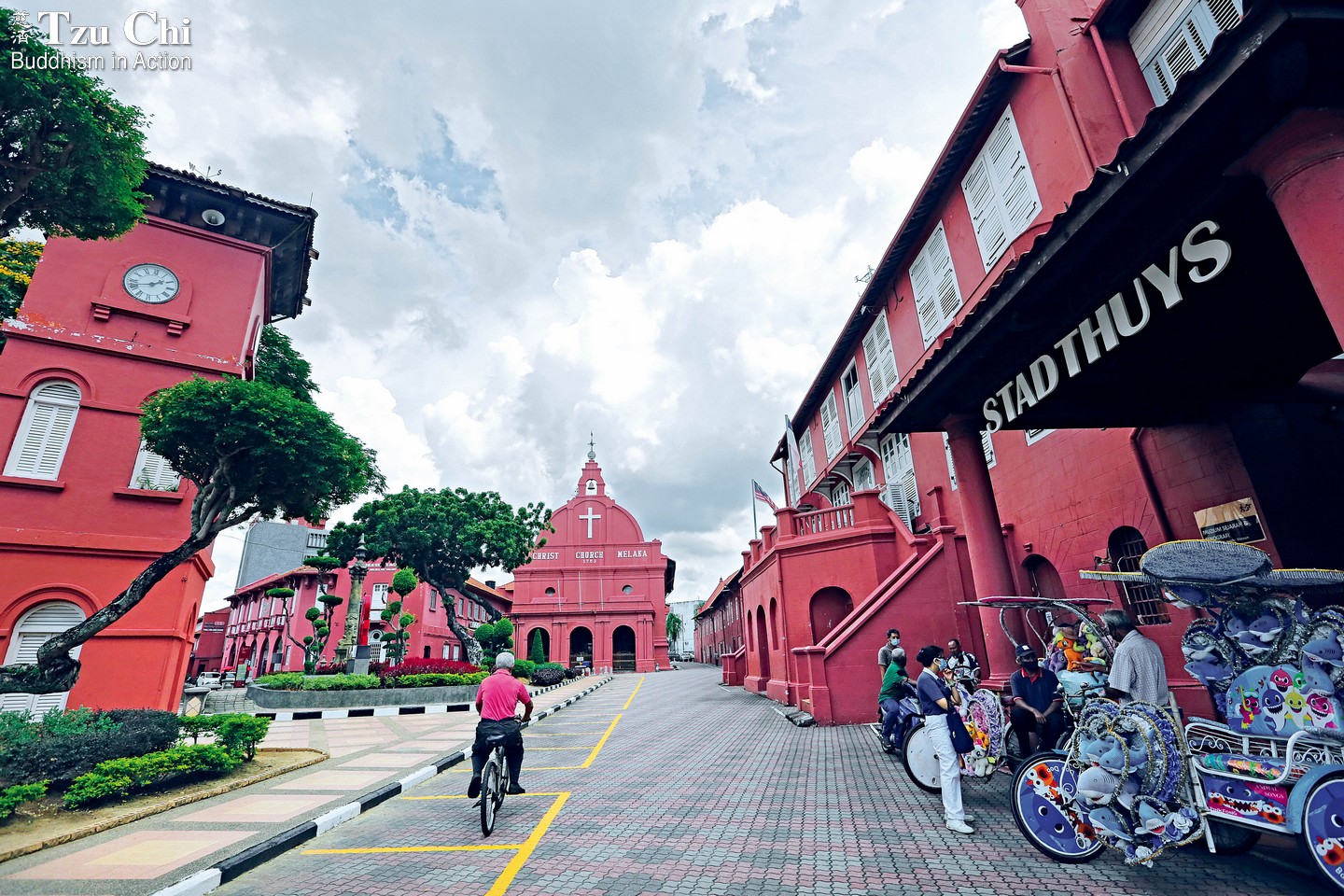
Tourism was an important mainstay of the economy in the Malaysian state of Melaka before COVID-19 took the world by storm. The Stadthuys, in the city of Melaka, is a historical landmark built by the Dutch in 1650. Tricycles could often be seen weaving around the landmark before the pandemic, but after the coronavirus started keeping tourists away, the livelihoods of local tricycle operators were severely impacted. Tzu Chi volunteers reached out to this group of people in December 2020 by providing them with financial aid. Luo Xiu Lian
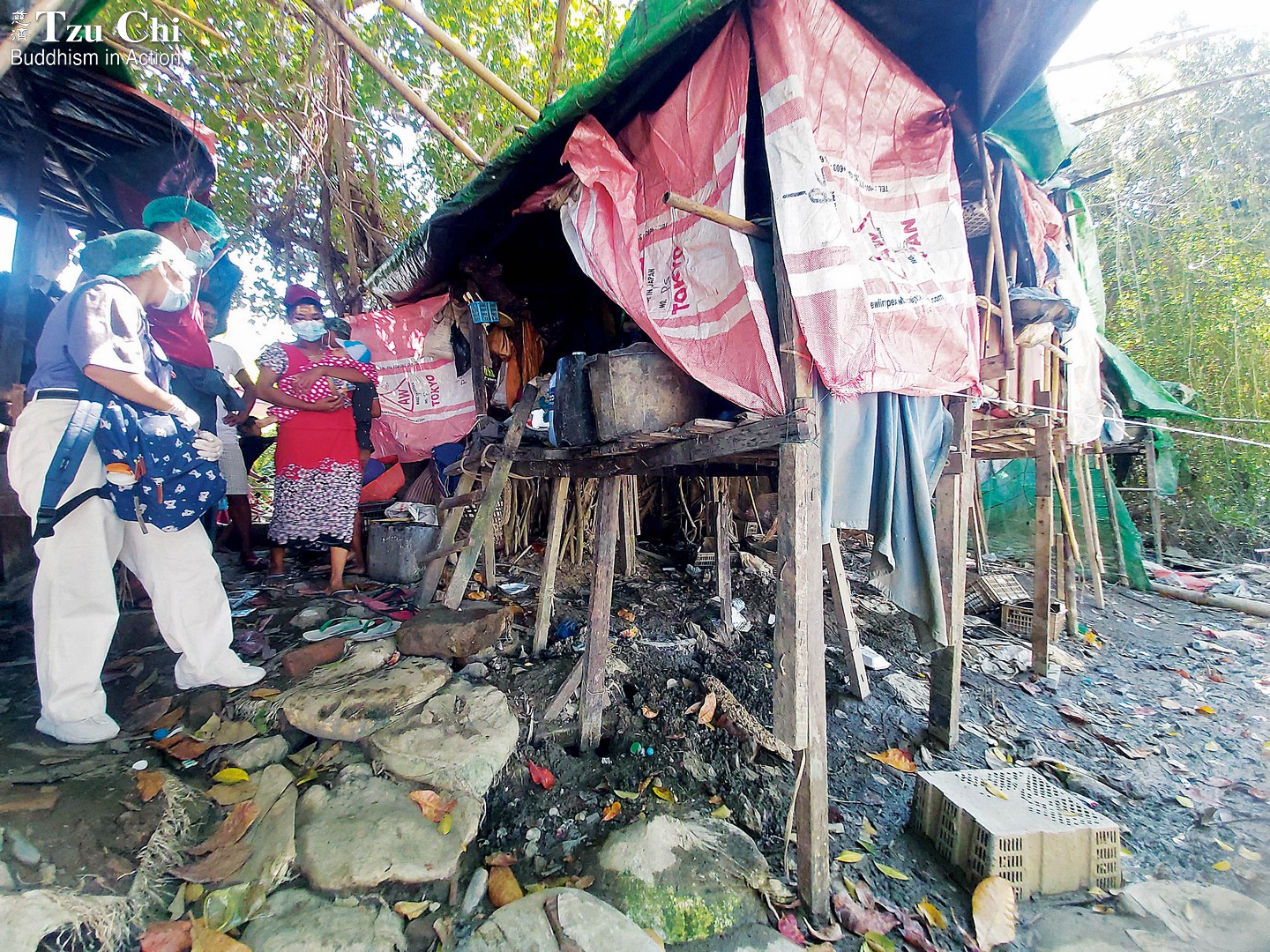
Myanmar is among the Southeast Asian countries that has been hit hardest by the coronavirus. In November 2020, Tzu Chi worked with the Yangon provincial government to distribute rice to 10,500 underprivileged families in Thaketa Township, Yangon, to help them through the crisis. Government pandemic restrictions had made it difficult for these families to get by. Many people in the township are from out of town. They can’t afford the rent due to unstable incomes, and have built illegal, makeshift homes to live in. Yi Mon Than


